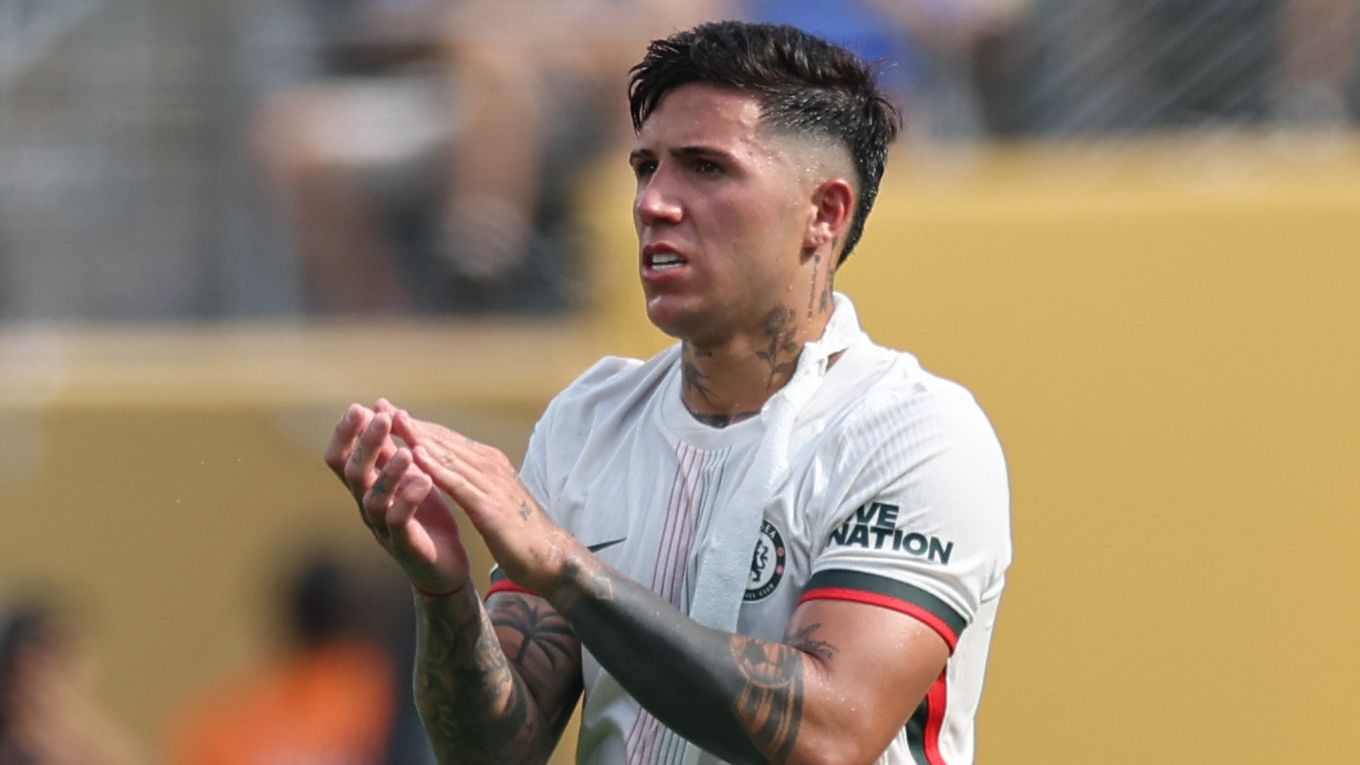Enzo Fernandez Warns of Hazardous Heat at Club World Cup
Enzo Fernandez revealed he almost fainted during Chelsea’s hard-fought FIFA Club World Cup semi-final against Fluminense, describing the 95°F (35°C) conditions in Jeddah as “very dangerous” for players forced to compete in mid-afternoon sun.
Enzo Fernandez details alarming experience on the pitch
The Argentina midfielder, signed by Chelsea for a British-record fee in 2023, explained that by the 30-minute mark he felt dizzy, light-headed and unable to concentrate. “My vision blurred. I thought I was going to pass out,” Enzo Fernandez admitted post-match. Medical staff rushed on with ice towels during the mandatory cooling break, yet the heat radiating off the King Abdullah Sports City turf offered little relief. Teammates Moisés Caicedo and Cole Palmer were also seen gasping for air as Chelsea eked out a 2-0 win that booked a final against Paris Saint-Germain.
Extreme heat raises wider player-welfare concerns
Elite footballers train for endurance, but temperatures above 90°F drastically elevate heart rate, dehydrate muscles and impair decision-making. Sports-science studies show sprint speed can drop by 10% when core body temperature exceeds 102°F. Enzo Fernandez stressed that the risk of heatstroke, cardiac distress and long-term kidney damage is “not worth a television slot.” Supporters in Jeddah’s lower tiers were offered complimentary water, yet many retreated to concourses for shade, underlining that both athletes and fans are vulnerable.
Cooling breaks are not enough
FIFA introduced a 90-second time-out every 30 minutes, but physiologists argue heat-acclimatization requires weeks, not minutes. “A wet towel cannot reverse rising core temperature,” notes Dr. Michael Berger, a consultant who advised the Bundesliga on its summer heat protocol. Enzo Fernandez echoed that sentiment, calling for kick-offs after sunset or inside climate-controlled arenas.
Chelsea Club World Cup schedule slammed by players
Chelsea had just 72 hours between their Premier League trip to Wolverhampton and the Saudi semi-final, followed by another 72-hour turnaround before Saturday’s showpiece against PSG—again set for 3 p.m. local time. Head coach Mauricio Pochettino praised Enzo Fernandez for “speaking truth,” adding that squad rotation alone “cannot counter furnace-like conditions.”
FIFA responds but offers limited assurances
Governing-body spokespeople insisted “stringent heat-stress guidelines” were followed and noted that local meteorological data predicted “manageable wet-bulb temperatures.” Yet critics point out that the same guidelines recommend postponement when humidity surpasses 60%—a threshold breached in Jeddah an hour before kick-off. The global players’ union FIFPRO urged FIFA to consult captains and medical leads before future tournament scheduling.
What awaits Chelsea and PSG in the final?
Both finalists requested an evening slot, but broadcasters prioritised a mid-afternoon window to capture European prime-time audiences. Enzo Fernandez will likely start at the base of midfield after undergoing additional hydration tests. PSG arrive fresher, having played their Ligue 1 fixture on Friday night and rotated key attackers. Kylian Mbappé’s blistering pace could prove decisive, especially if Chelsea’s fatigued legs wilt again under oppressive heat.
Opinion: Player voices must shape the football calendar
The courage shown by Enzo Fernandez spotlights an overdue debate: commercial imperatives should never eclipse athlete safety. Football authorities tout global growth, yet the game’s most valuable asset remains the players themselves. Scheduling marquee matches in searing afternoon heat undermines performance, endangers health and erodes the spectacle fans pay to see. Meaningful reform will arrive only when governing bodies invite athletes like Enzo Fernandez to the decision-making table—and genuinely listen.
Your global gateway to nonstop football coverage:
Goal Sports News
Share this content:
